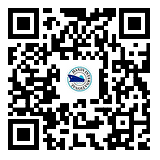Operational Skills for LCL Cargo in Foreign Trade
1. "Consolidate" is the English word for consolidation, abbreviated as "console" in international trade and transportation.
2. LCL cargo generally cannot be accepted by a specific shipping company. Shipping companies only accept bookings for FCL cargo, and do not directly accept bookings for LCL cargo. Only through freight forwarders (some strong shipping companies use their logistics companies) can LCL cargo be consolidated and booked from shipping companies. Almost all LCL cargo is transported through freight forwarding companies' centralized handling and distribution, and the LCL distribution port in East China is basically Shanghai Port. Due to the limitations of the supply of goods, general freight forwarders can only book shipments from a few shipping companies and rarely meet the needs of designated shipping companies. Therefore, when dealing with LCL shipments, it is advisable not to accept designated shipping companies to avoid being unable to meet the requirements during the shipment process.
3. When negotiating transactions with customers, special attention should be paid to the relevant transportation terms to avoid the other party discovering that they cannot meet the transportation terms only when handling the shipment after the issuance of the letter of credit. In daily operations, we often encounter L/C regulations that do not accept bills of lading from freight forwarders for LCL shipments. As the shipping company does not directly accept booking of LCL shipments, the shipping company's bill of lading is issued to the freight forwarder, who then issues a HOUSEB/L to the shipper. If L/C regulations do not accept bill of lading from freight forwarders B/L, there is no room for selection during actual transportation processing, which will result in L/C discrepancies. For example, when we were handling transportation, we found a bill of lading stating: GoodsmustbeshippedcontaineronLCLbasic and BillofLading to evidence the same and to show that all LCL. handling charges, THCanddeliveryorderchargesathatport of chargesarepaid. From the original text of the L/C above, it can be seen that the consignee has transferred all the expenses that should have been borne by him to the shipper, which is due to the lack of detailed negotiation on transportation terms between the shipper and the customer during trade negotiations.
4. We strive to achieve accuracy in the billing of LCL shipments. Before delivering LCL goods, the factory should be required to measure the weight and size of the goods as accurately as possible. When the goods are delivered to the warehouse designated by the freight forwarder for storage, the warehouse generally re measures them and charges based on the re measured size and weight. If the factory changes the packaging, it should be requested to notify the factory in a timely manner. Do not wait until the goods are delivered to the freight forwarder's warehouse and feedback the information back through the freight forwarder. Often, time is already tight, and changing the customs declaration documents can easily delay customs declaration, or incur expedited customs declaration fees and port clearance fees.
5. Some ports, due to insufficient supply of LCL cargo and high costs, have freight forwarding companies specializing in LCL, which adopt the minimum charging standards for goods with small quantities. For example, if the minimum is 2 freight tons, or less than 2 freight tons, they will be charged based on 2 freight tons. Therefore, for goods with small volume and biased ports, more consideration should be given to these factors when making transactions to avoid being passive in the future.
6. For some routes and ports that are remote and customers request to deliver LCL goods to inland points, it is best to consult before signing the contract, and confirm that there are shipping companies and freight forwarding companies that can undertake the delivery and related fees to these remote ports and inland points before signing the contract.


